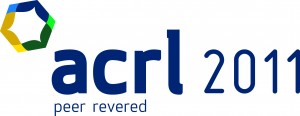
Branding, as a term, is often viewed negatively because many people feel that it implies selling yourself as something you’re not.
In reality, branding is merely a word we use to say “this is how others perceive you”.
A great example of this is Apple, as a company it is known for innovation, ease of use, reliability, and customer service. In order to maintain their status as a number one seller or electronics they carefully manage the types of products which they create and how their stores are run to preserve their reputation in the above areas.
You may be perceived as smart, reliable, flaky, fun, or boring. Managing your online identity helps you understand how others perceive you which will enable you to more accurately portray your
values and interests.
Why should you care?
- Not knowing what is associated with your name online can lead to you being associated (wrongly) with others crimes and misdemeanors.
- People with the same first and last name can make you unfindable in search results.
- Vendors, clients, colleagues, and administrators will search for you online. Do you know what they will find?
- Not paying attention and over-sharing does cost people jobs.
Why are the benefits?
- @KateClancy received invitations to two speaking engagements because of her blog posts.
- Name recognition in your field. Write about what you care about and you’ll be surprised how many people are paying attention.
- Collaborators! Meet and maintain contact with similar interests anywhere in the world.
Want to learn more?
Personal Branding for New Librarians: Standing Out and Stepping Up
March 31st
10:30am – 11:30am
ACRL 2011 Virtual Conference
Presenters Information:
Kiyomi D. Deards, University of Nebraska-Lincoln / kdeards2@unl.edu
@kiyomid (Twitter)
Erin Dorney, ?Millersville University / erin.dorney@millersville.edu
http:www.libraryscenester.wordpress.com (Blog) / @libscenester (Twitter)
Bohyun Kim, Florida International University / bohyun.kim@fiu.edu
http://bohyunkim.net/blog (Blog) / @bohyunkim (Twitter)
Alison Miller, ipl2 Reference Services, Drexel University / milleru65@gmail.com
@millerlibrarian (Twitter)

